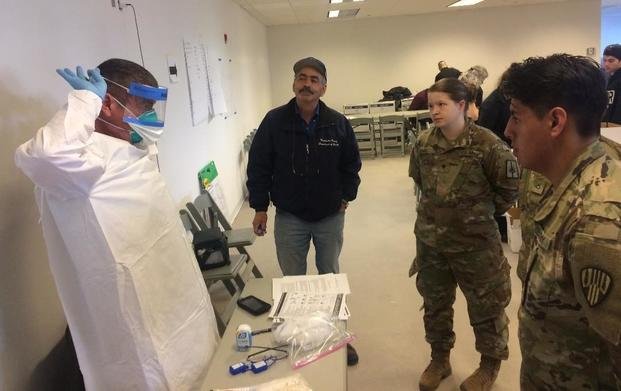You may have heard that President Trump signed an executive order Friday, March 27 allowing the military to recall members of the selected reserve and some former service members to active duty in support of the government's response to the novel coronavirus (COVID-19) outbreak.
Read: Trump Authorizes DoD to Bring Reservists and Some Former Troops on Active Duty for COVID-19 Response
While this sounds ominous, the executive order is mainly a formality giving the Pentagon the authority to recall reserve members as necessary. A federal law (10 U.S. Code § 12302) that has been around since 1953 authorizes the president to recall up to one million reservists for up to two years in times of national emergency.
The military branches have also started to gauge interest from recently separated members on volunteering to return to active duty in response to the COVID-19 pandemic. The Army, for example, recently contacted 800,000 retired members asking about their willingness to return to active duty and help the service fight the pandemic. More than 17,000 retirees, representing various specialties, have responded at the time of this writing.
Who Will Be The First To Be Recalled?
If the coronavirus pandemic worsens and requires a major military mobilization, an involuntary recall would begin only if there aren’t enough active-duty members, selected reserve and guard members and volunteers returning to active duty. The order of recall is as follows:
- Retirees and inactive reservists under 60 who have been off active duty for less than five years
- Retirees and inactive reservists under 60 who have been off active duty for five years or more
- Retirees and inactive reservists, including those retired for disability, who are over 60 years old
Again, the needs of the service are tantamount, and some military specialties may have different rules than others. A medical officer who has been out of the military for 15 years may be recalled before an aircraft mechanic who separated last month.
10 U.S. Code § 12302 also says that recall consideration will be given to:
- the length and nature of previous service, to assure such sharing of exposure to hazards as the national security and military requirements will reasonably allow;
- family responsibilities; and
- employment necessary to maintain the national health, safety, or interest.
That means if you are a health care professional and can do society more good as a civilian, you may be exempted from recall. Also, if you have serious family responsibilities you may be exempted.
The law may also exempt veterans with some disabilities or medical conditions from any involuntary recall. Those with less than honorable discharges and certain separation codes may also be exempted from involuntary recall.
What Happens If You Are Recalled?
You will most likely get a certified letter from the military directing you to an intake center. If you don’t answer the letter, they will send another one to your home of record. If you still don’t respond, you will be identified as a deserter and possibly face legal action.
If you are recalled, you have the same responsibilities as any active-duty member: no drug use, adherence to grooming and physical readiness standards, support of the needs of the military and obedience to the chain of command.
Even if you meet those obligations, you won’t be eligible for any promotions as a recalled member. Instead, you will be paid at your current rank or the rank at which you separated. Your retirement pay and any VA disability benefits will also stop for the duration of your revitalized active duty service.
Related: Can You Really Be Recalled to Active Duty at Any Time?
Want to Know More About the Military?
Be sure to get the latest news about the military, as well as critical info about how to join and all the benefits of service. Subscribe to Military.com and receive customized updates delivered straight to your inbox.















